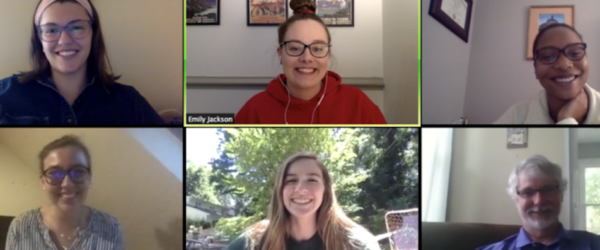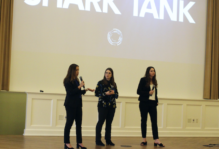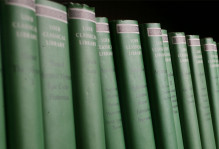Separate but Connected: Summer with the Global Research Institute
By Maggie Manson ’22
When the COVID-19 pandemic hit and universities throughout the world had to transition to virtual learning, many students were faced with uncertainty regarding many aspects of their life, including their summer plans. I personally had intended to study abroad this summer in Amman, Jordan, where I would study Modern Standard Arabic. In these times of uncertainty, the Global Research Institute (GRI) at William & Mary used this as an opportunity to grow student engagement within the Institute. This included hiring many W&M students for the summer to address financial concerns, allowing students to connect to international research despite being quarantined in their homes, and planning career-building events such as Coffee Chats and Career Conversations that provided students with the opportunity to connect with alumni and other professionals in the field of international relations. Coffee Chats were organized as 30-minute Zoom calls in which these professionals would provide background information of themselves and then take student questions. These Q&A sessions would not only provide fascinating insights from the professionals, but also allow us to hear the perspectives and experiences of our peers as they asked extremely thought-provoking questions.
While I attended virtually every Coffee Chat that I could, one that I particularly enjoyed was with Julia Johnson, M.D. ’05. Julia Johnson is a neonatologist at Johns Hopkins University, with a research interest in neonatal global health and infection prevention. She spoke to us about her current research with the CDC in India focused on prevention methods for healthcare-associated complications in neonates, and how her liberal arts, research-based education at William & Mary has allowed her to get to where she is. One thing that she said that really resonated with me was that there is no top-down approach to policymaking and research, it is essential to connect with local partners and stakeholders, as well as research assistants to ensure that all work is done with a strong community focus. This, of course, made me immediately think of the GRI and the impact it has had on the W&M community since its inception, and especially in these last few months. The GRI ensures that all research projects of international nature are rooted in the community, as they work to uplift students in these challenging times by engaging us in interesting research projects, providing a platform for important conversations, and organizing career-building activities.
This summer at the GRI I have had the opportunity to continue as a research assistant for the Teaching, Research, and International Policy (TRIP) Project, as well as engage in a new research opportunity with Institute Researcher, Professor Sharan Grewal as a research assistant for the Armed Responses to Mobilization Or Revolution (ARMOR) Project. Some projects that I have worked on include compiling a think tank survey sample, writing for and managing the TRIP RA blog, analyzing arguments about nuclear policy made in the book “Bridging the Theory-Practice Divide in International Relations,” and creating a global dataset on military responses to mass uprisings. I am so thankful for the community and opportunities that the GRI has provided me and hundreds of other students with. The connections they were able to foster this summer were essential to maintaining a community of research and rapport among student and faculty researchers.

The TRIP Summer Team (Maggie Manson, Zenobia Goodman, Mary Trimble, and Morgan Doll) meeting via Zoom with Professor Mike Tierney and Project Manager Emily Jackson




No comments.
Comments are currently closed. Comments are closed on all posts older than one year, and for those in our archive.